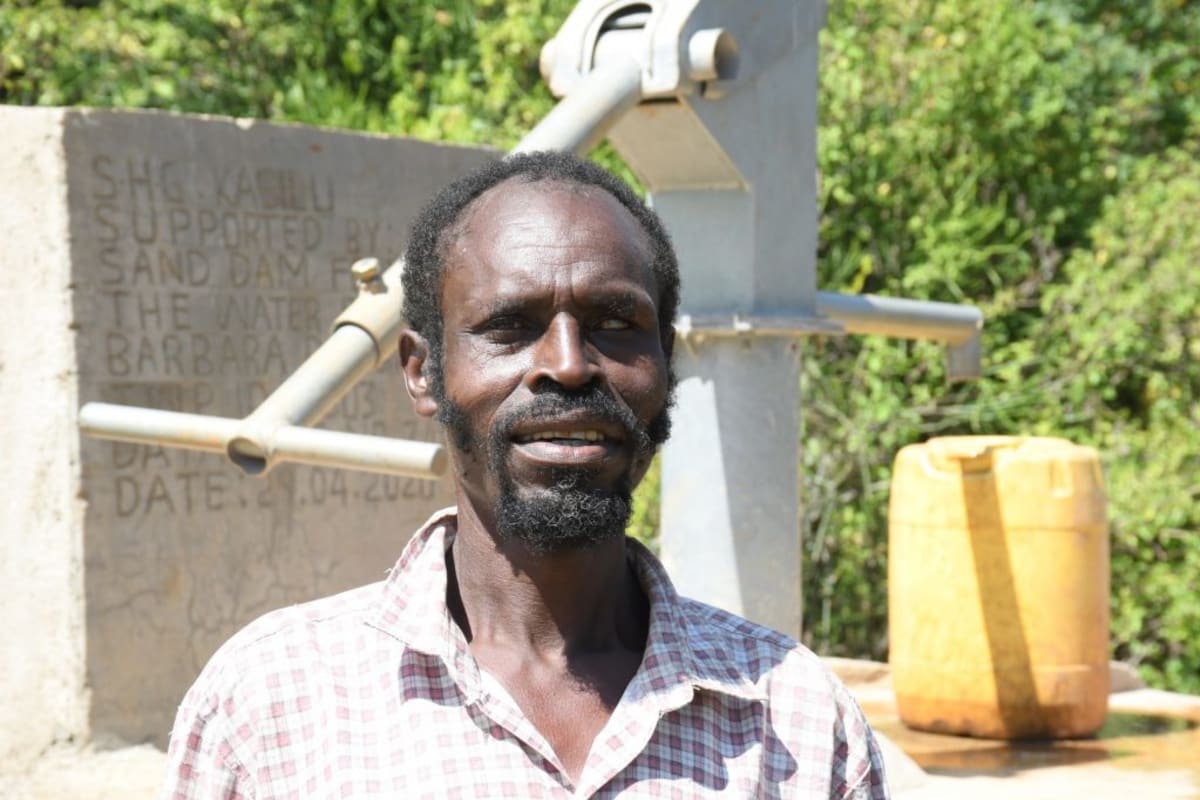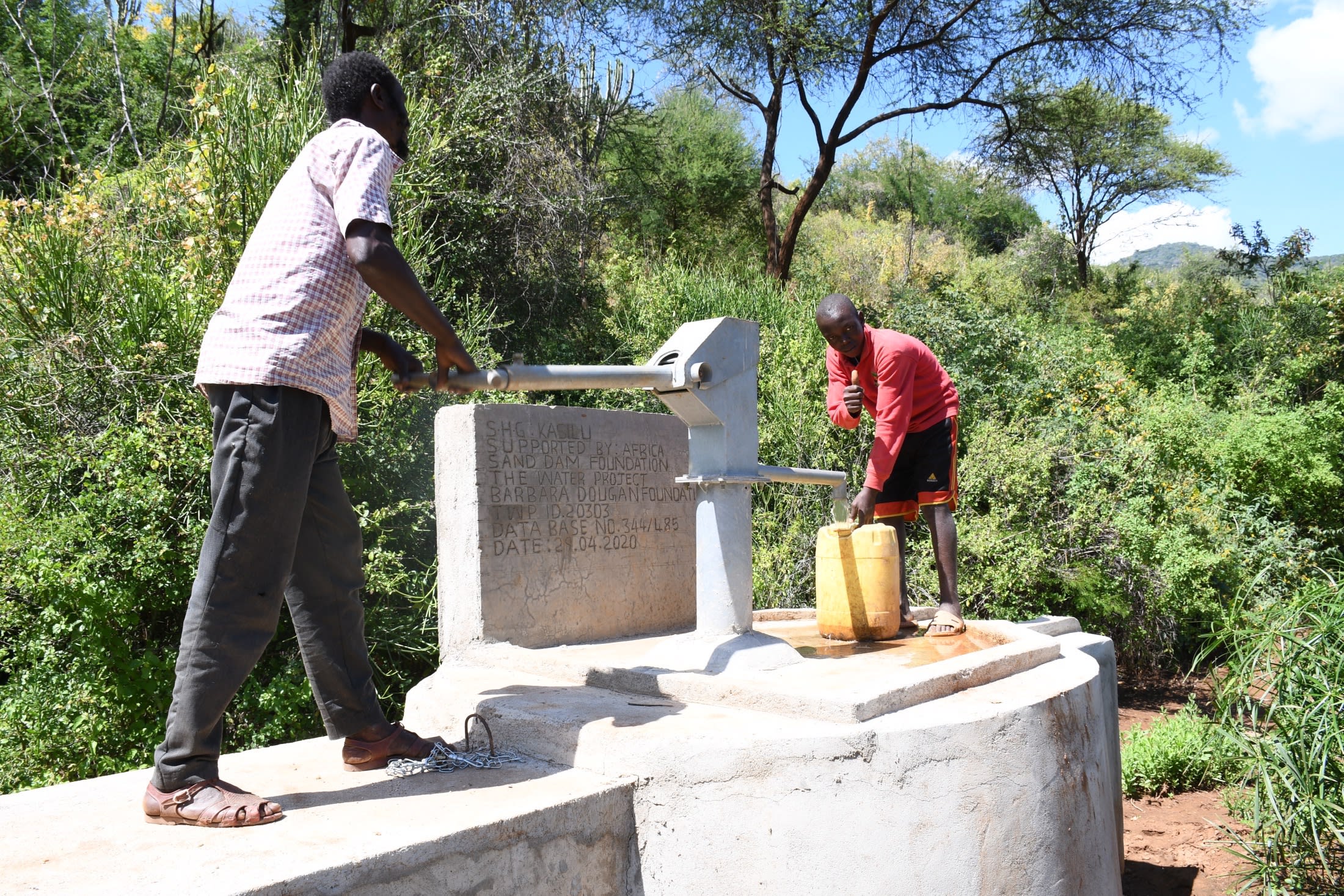Nzimba is found on the slopes of the Mumoni hills in Mumoni sub-county, Kitui County.
On an average day for the community members in this region, the women and children wake up at 6:00 am, go to fetch water, prepare breakfast for the family as the children prepare to go to school. The man, on the other hand, wakes up to go to the farm to get Napier grass for the livestock and also prepare to run his errands. During the day, the woman goes for water fetching, washes the family’s clothes, tidy up the house, washes utensils and prepares lunch as well as supper for the family.
But without nearby access to a reliable water source, most days are not average in Nzimba. The water source was found on a seasonal river channel more than 3 km from the nearest household. People spend more than 2 hours just to travel to the river, fetch water, and travel home.
For Lucia Musili, a farmer who lives in the community, it means waking up at 4:30 am each day to go and get water.
"It has not been easy taking the long walks in the darkness. This has derailed my personal development as most of the time is spent searching for water," she said.
The river water is an open-source which is accessible to animals and wildlife, it remains exposed to many contaminants all the time. For most of the year, people have to dig holes in the dry riverbed to get the water that is stored in the ground. Some members also visit the source to fetch water using donkeys to help them carry multiple containers. Their presence also further contaminates the water.
"I have suffered from typhoid as a result of using water which is not safe for human consumption," said Mbuli Mutisya, a farmer who also travels the long distance to the river.
The lack of water contributes to other problems. The hygiene and sanitation levels within this community are below average, there is poor water handling, no proper waste disposal through the use of garbage pits and the available latrines demonstrate poor cleanliness standards. Many of these challenges are connected to the lack of water available nearby.
Reliable Water for Nzimba
Our main entry point into Nzimba Community has been the Kasilu Self-Help Group, which is comprised of households that are working together to address water and food scarcity in their region. These members will be our hands and feet in both constructing water projects and spreading the message of good hygiene and sanitation to everyone.
Hand-Dug Well</h3>
This particular hand-dug well will be built adjacent to a sand dam project, which will supply clean drinking water once it rains. We have supplied the group with the tools needed for excavation. With the guidance of our artisans and mechanics, the excavated well will be cased, sealed with a well pad, and then finished with a new AfriDev pump.
Excavation takes a month or more on average, depending on the nature of the rock beneath. Construction of the well lining and installation of the pump takes 12 days maximum. The well will be lined with a concrete wall including perforations so that once it rains, water will filter in from the sand dam.
This well will be located in Nzimba Village and will bring clean water closer to families.
New Knowledge
These community members currently do their best to practice good hygiene and sanitation, but their severe lack of water has been a big hindrance to reaching their fullest potential.
We will hold hygiene and sanitation training sessions with the Kasilu Self-Help Group and other community members to teach about important hygiene practices and daily habits to establish at the personal, household, and community level. This training will help to ensure that participants have the knowledge they need to make the most out of their new water point as soon as water is flowing.
One of the most important topics we plan to cover is the handling, storage, and treatment of water. Having a clean water source will be extremely helpful, but it is useless if water gets contaminated by the time it is consumed. We will also emphasize the importance of handwashing.
We and the community strongly believe that all of these components will work together to improve living standards here, which will help to unlock the potential for these community members to live better, healthier lives.
We typically work with self-help groups for 3 to 5 years on multiple water projects. We will conduct follow-up visits and refresher trainings during this period and remain in contact with the group after all of the projects are completed to support their efforts to improve sanitation and hygiene.

 Protected Dug Well
Protected Dug Well
 Rehabilitation Project
Rehabilitation Project




































